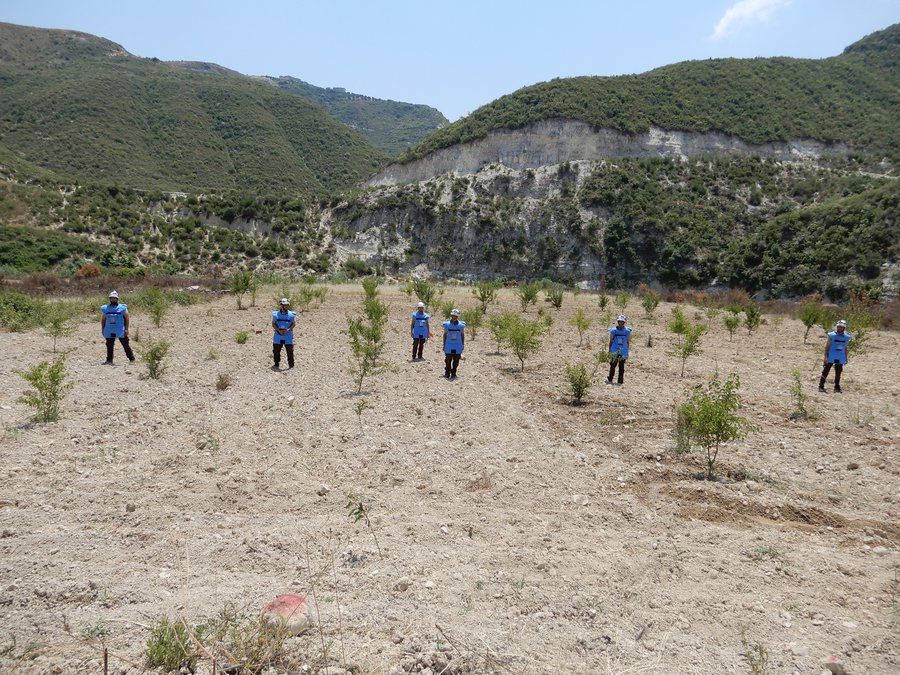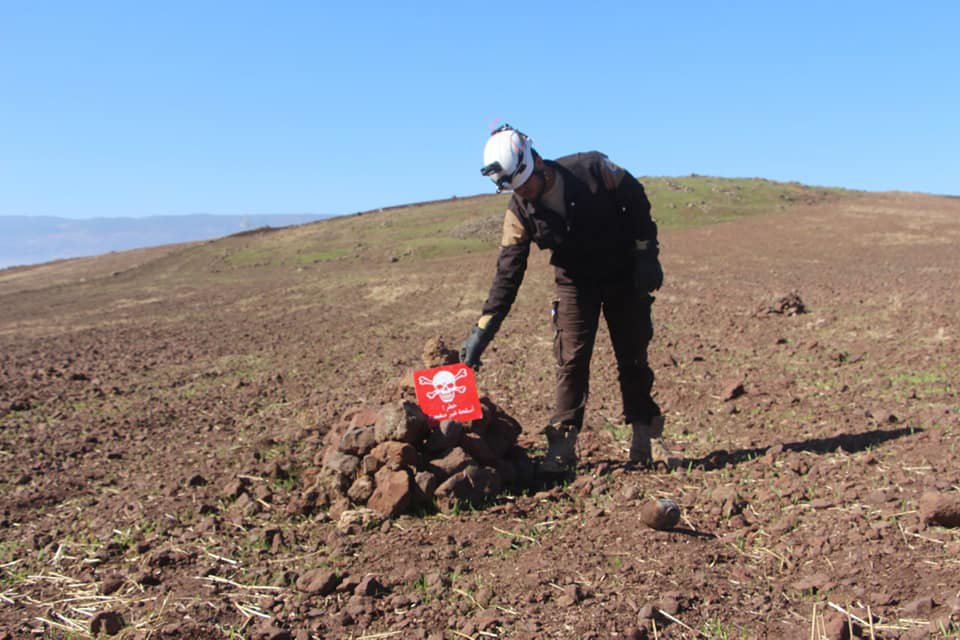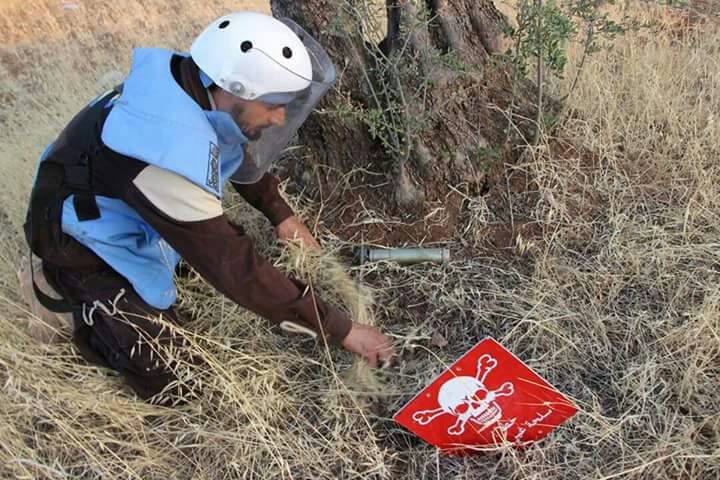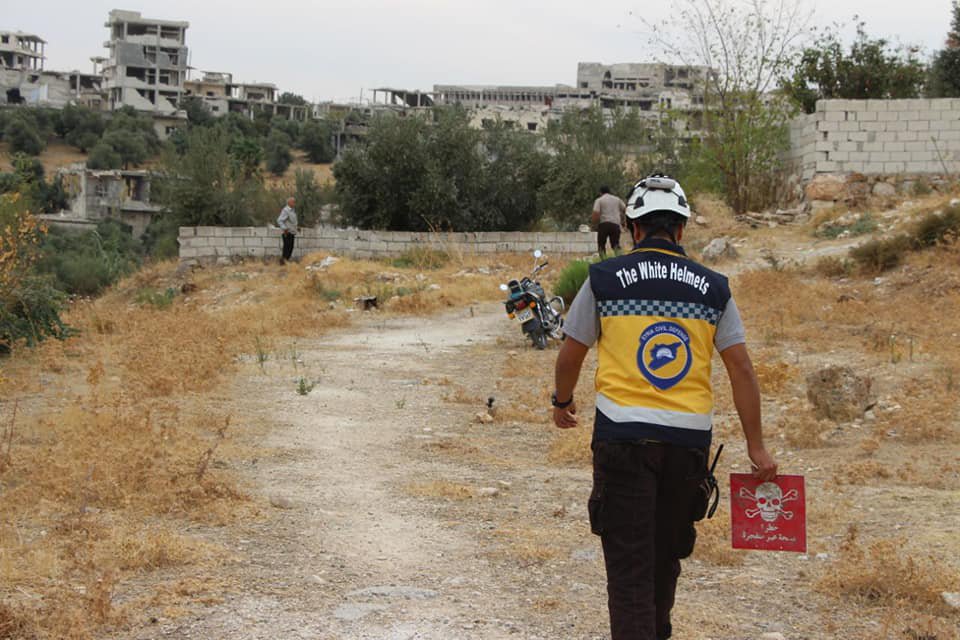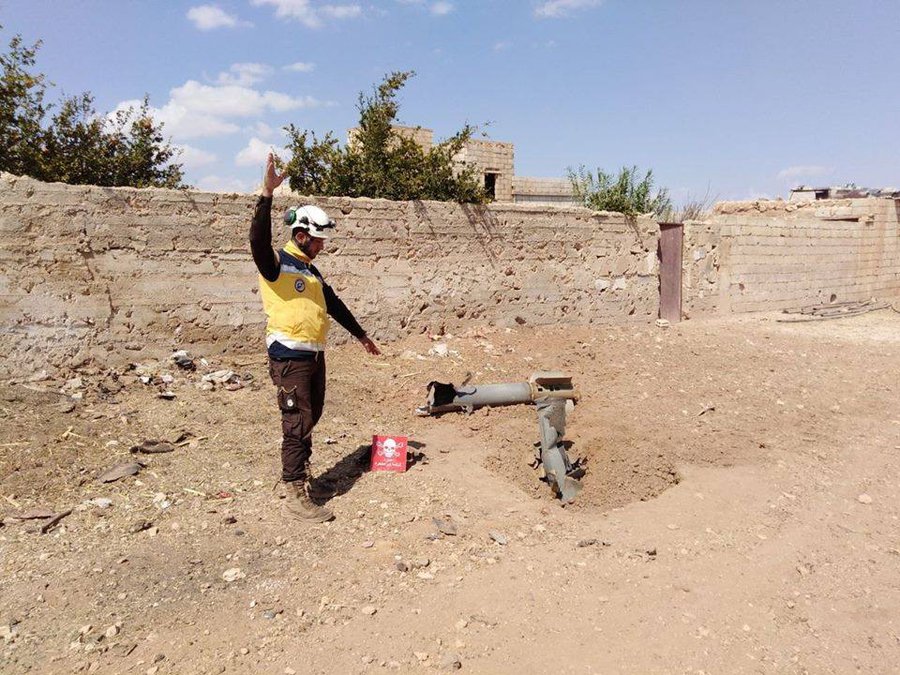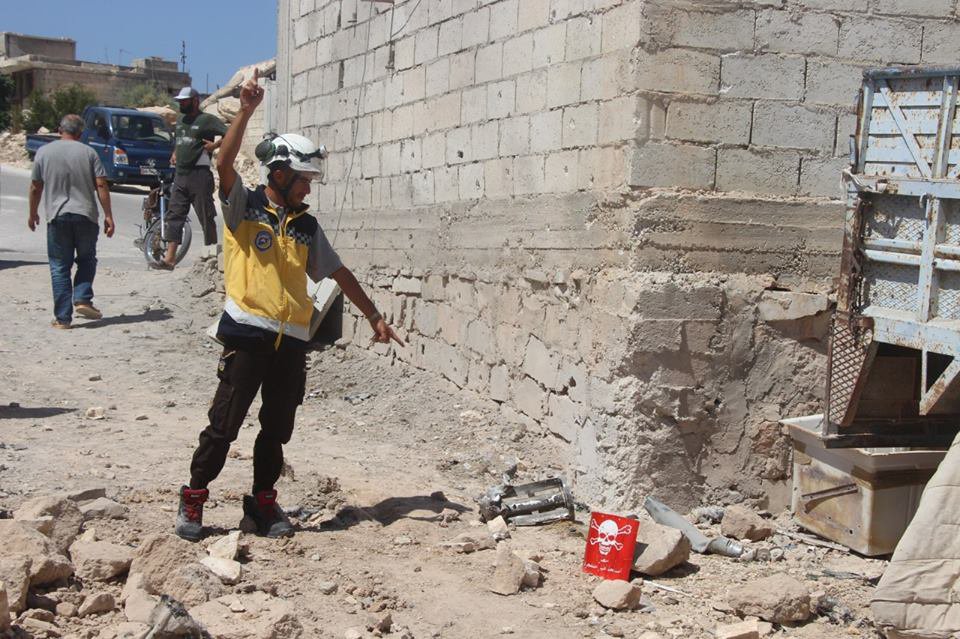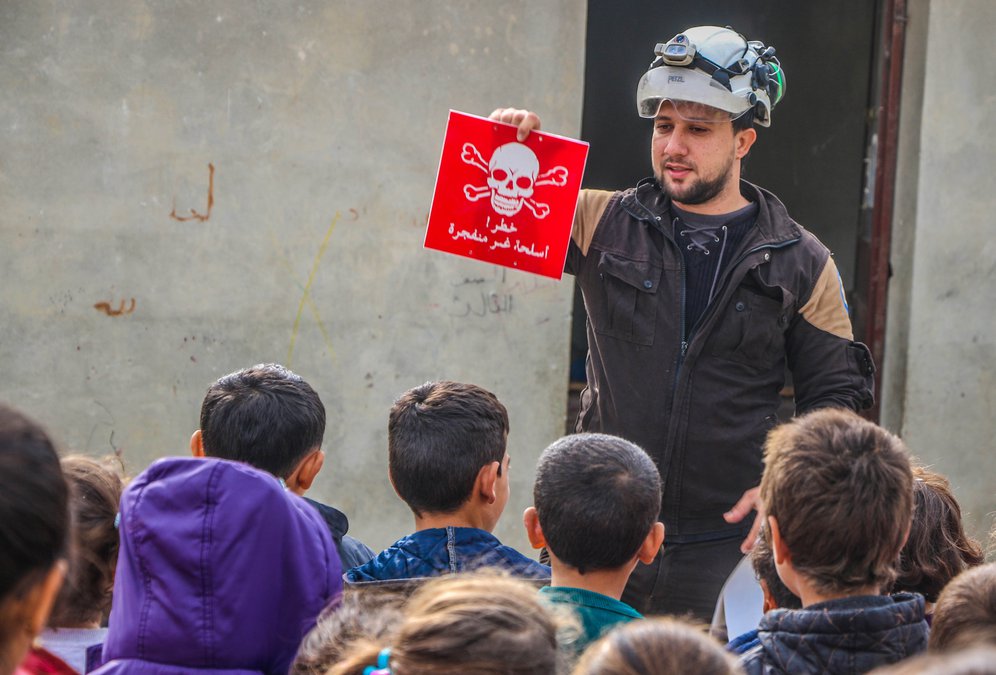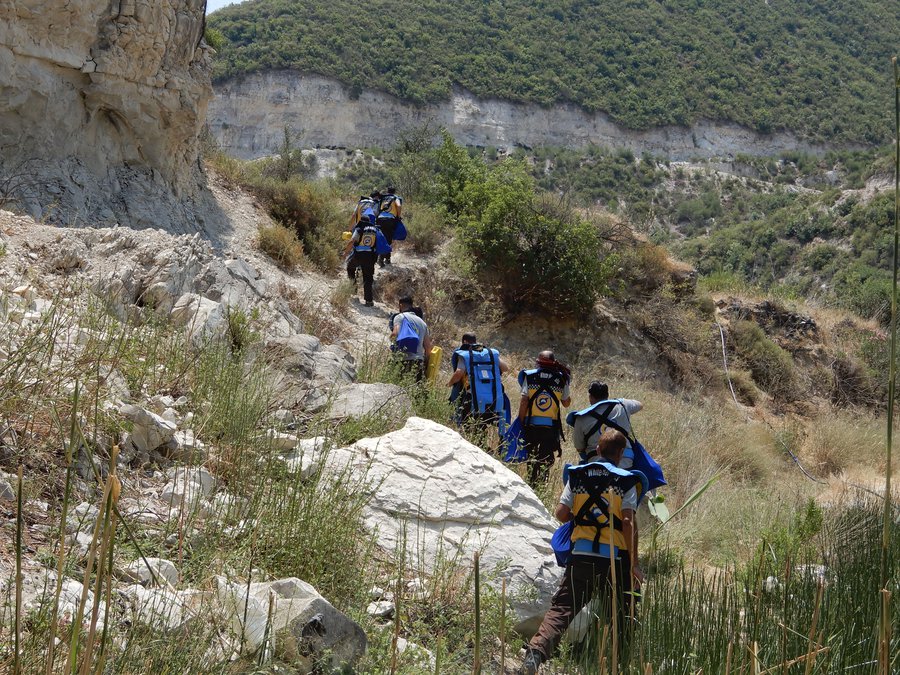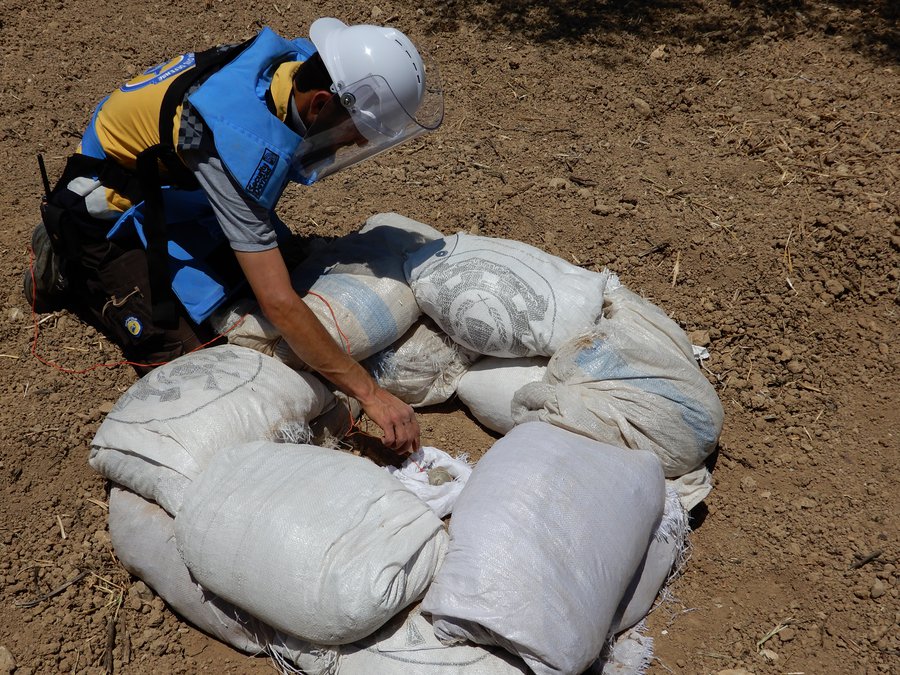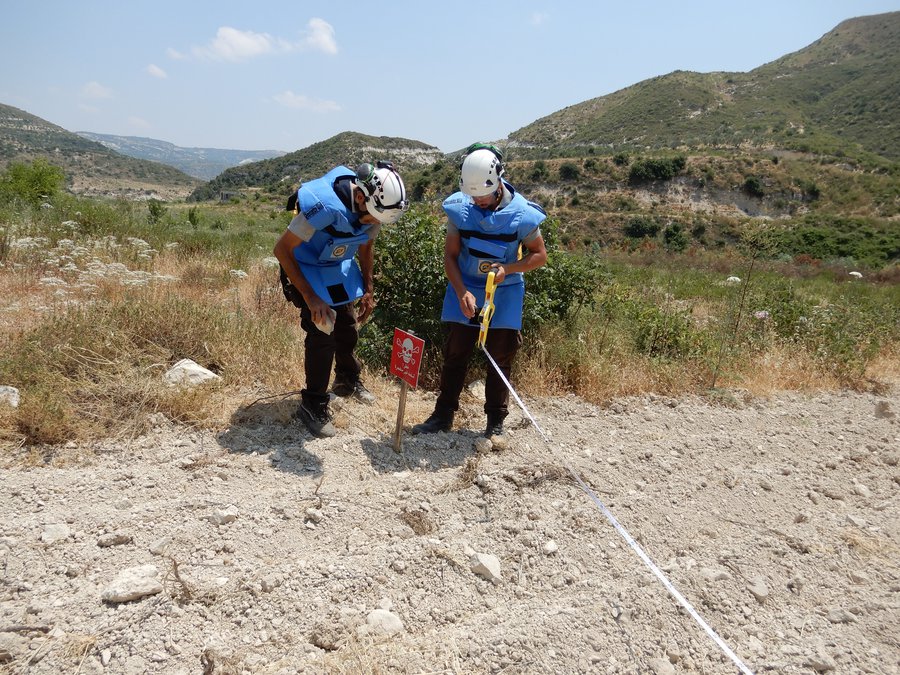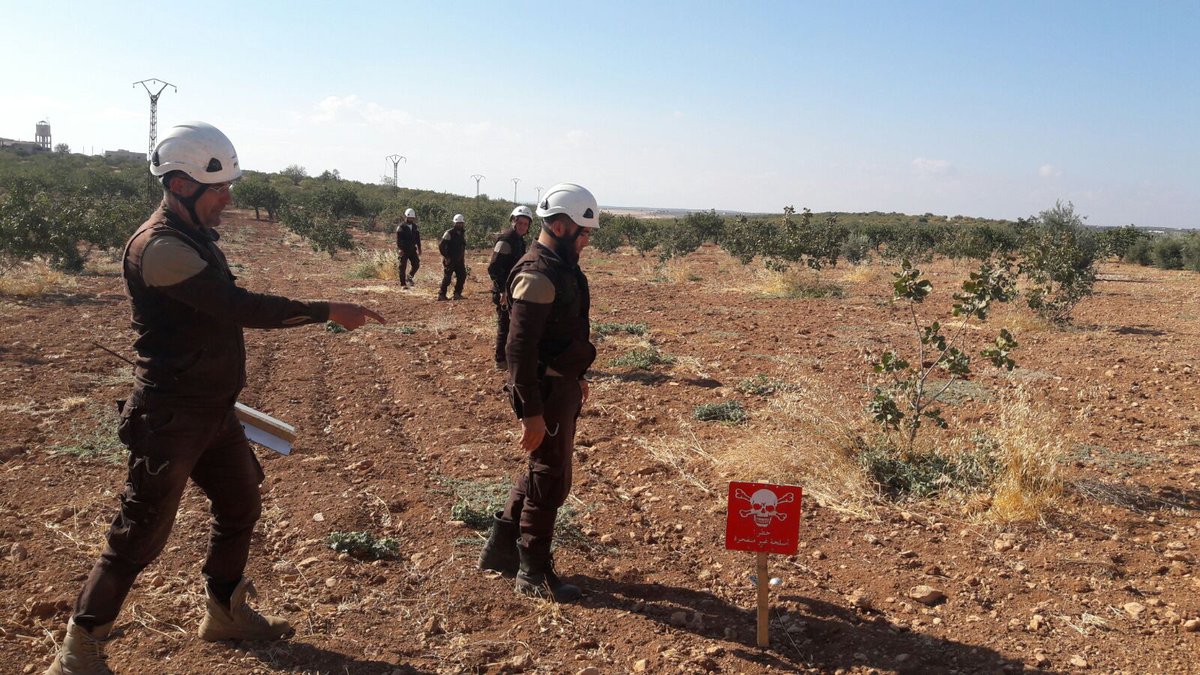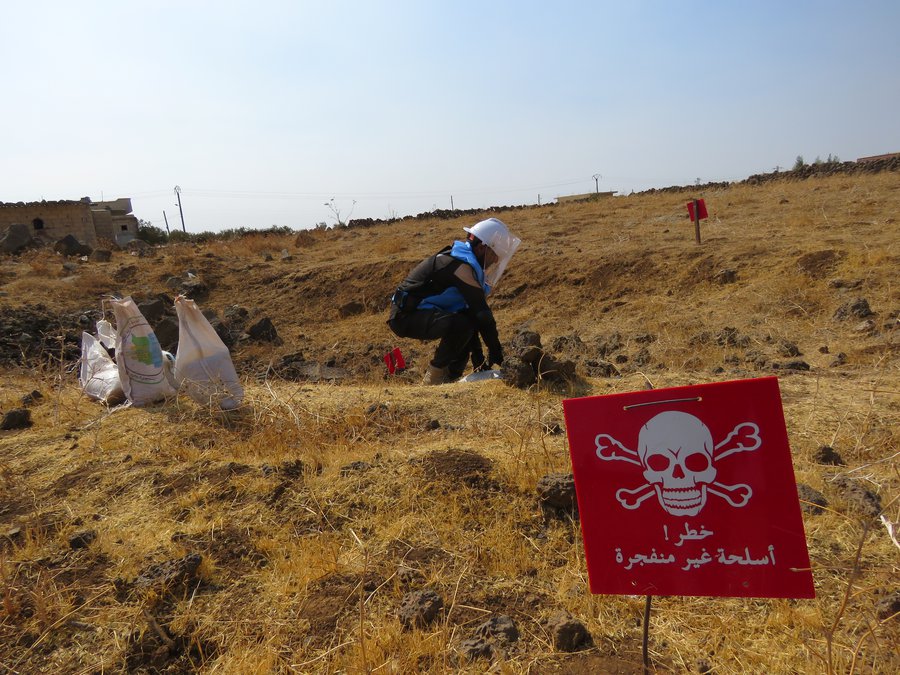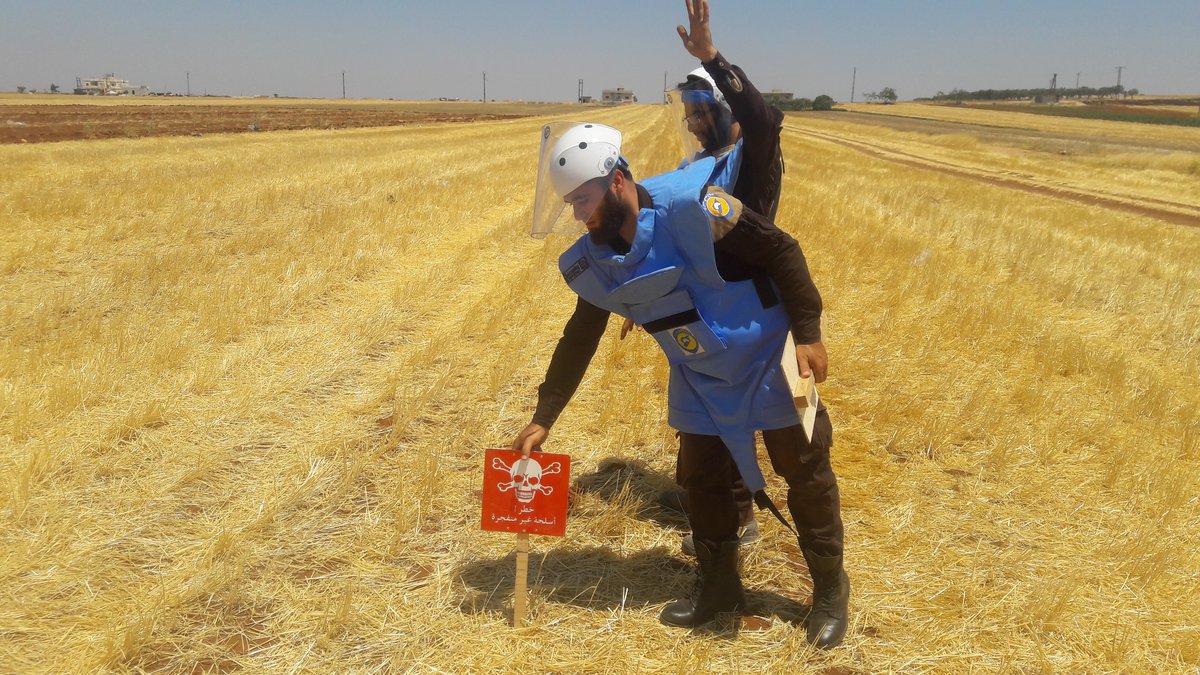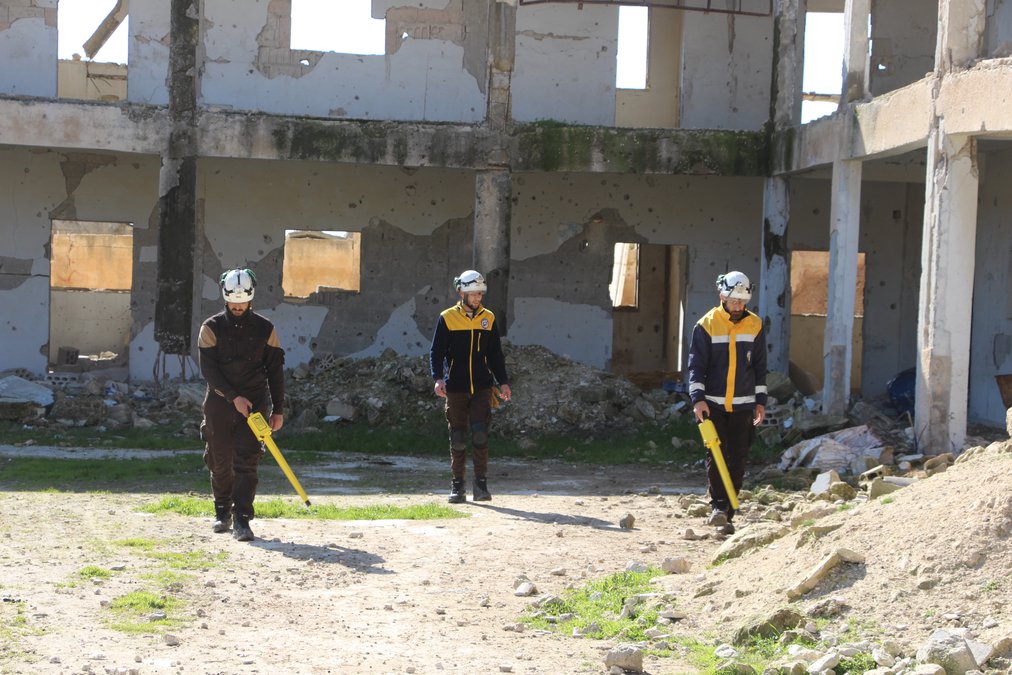Clearing and securing areas
After more than 5 years of aerial war in Syria and 8 years of fighting on the ground, the remnants of war are everywhere. Cluster munitions and unexploded ordinances lie in farming fields, streets and abandoned homes --- these weapons remain dangerous decades after they’re dropped. While these weapons don’t grab the headlines they pose a grave risk to communities.
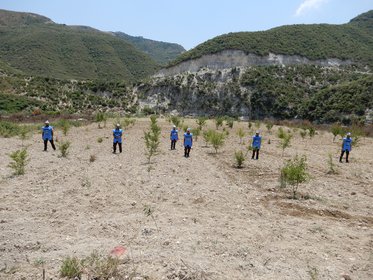
Idleb-Jiser ASH-shoghor
Explosive Hazard clearance Team has disposal items in Jiser ASH-shoghor
Community awareness
The safest solution is to remove all unexploded weapons but while we wait for the safety, time and resources to do this the most effective way to save lives is through educating local people on what to look for and encouraging safe behaviour. White Helmets teams have provided more than 1,340,000 community awareness brochures and conducted more than 36,000 awareness sessions. Many of the awareness sessions are conducted schools as children are too often the first to find these devices, particularly young boys.
The need for this education is particularly acute in communities where people have to use the land for firewood and farming to survive. This awareness is saving lives as we see a clear correlation between the increased awareness and decreased rate of injuries and death in areas we work.
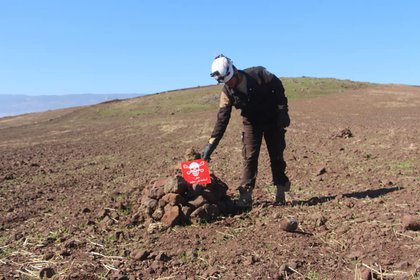
Hama province
A volunteer ham marks and identified the dangerous places to prevent residents from approaching them
The removal of UXOs is a very big trust to carry because of the number of weapons across our country. Despite the loss of one of colleagues in this work we carry on believing in our mission -- 'to save one life is to save all of humanity'.
Sami Mohammed, UXO officer
Removal of unexploded weapons
The goal of the White Helmets is to remove all unexploded weapons. While the exact number of weapons can not be known, we estimate the total figure to be in the hundreds of thousands at a minimum. This is dangerous and painstaking work.
We do this work in partnership with local councils and other local civil society groups who help alert our teams to areas where clearance is needed. This can be rural areas, farmland or homes in densely packed urban areas. Where possible we remove the weapons, if we can not do this we mark the area as dangerous to keep civilians away. In addition to saving lives this work helps restore life to communities allowing land to be farmed again, houses inhabited and schools put back into use.
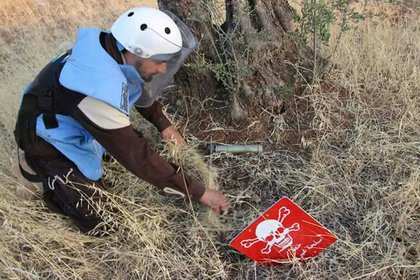
A volunteer marking the dangerous places to keep civilians away of it.
We have removed more than 20,000 unexploded weapons. Here is the story of one operation that is typical of our work. The Al Rifai school in Hama was heavily bombed, when the team went to clear the site they removed 50 cluster munitions and 6+7 grade wackets. Following this removal operation the school reopened and our volunteer’s wife, a teacher, returned to work.
This work is highly specialised and we face many challenges: a lack of access means we only received one face to face trainings with experts the rest has to be delivered remotely. It is also difficult for us to import the equipment needed meaning our teams are often using more basic equipment adding time and danger to work.
Currently we have two teams doing this work, and by the end of 2019 we hope to increase this to four teams. This work will take decades and we hope to be able to secure the resources and access needed to complete it.
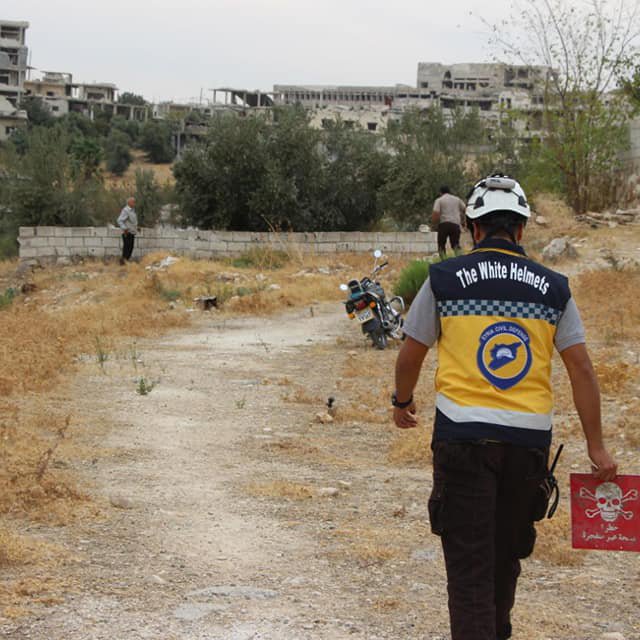
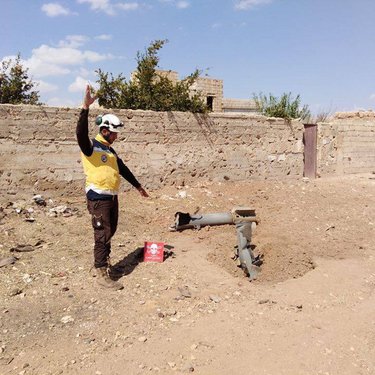
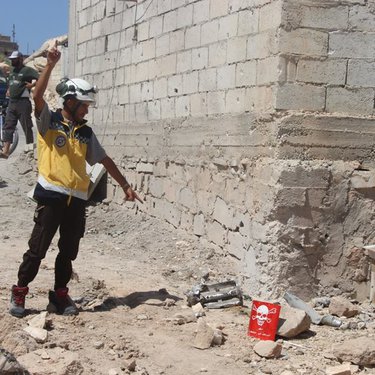
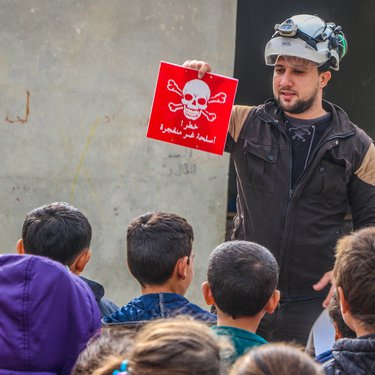
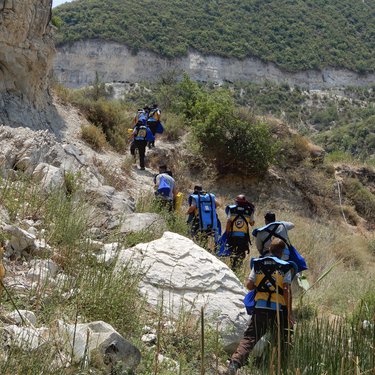
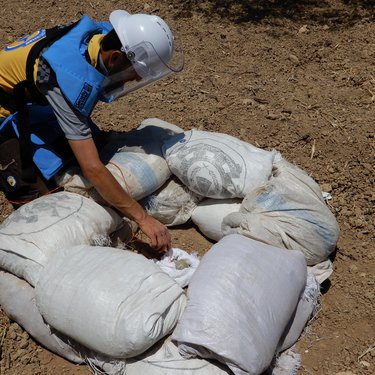
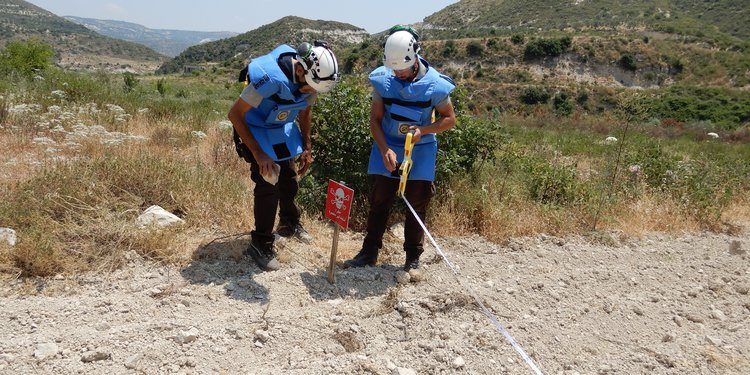
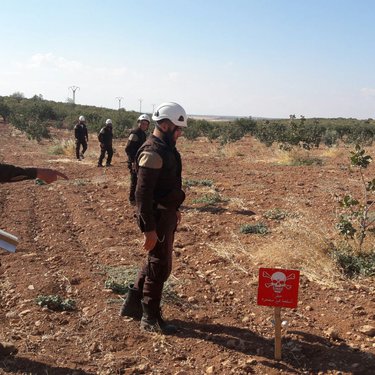
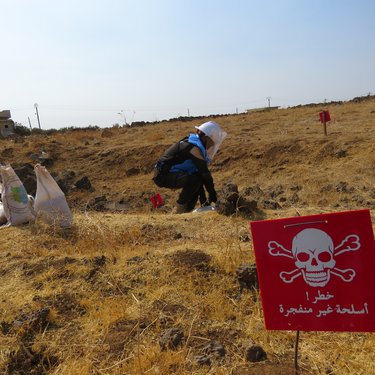
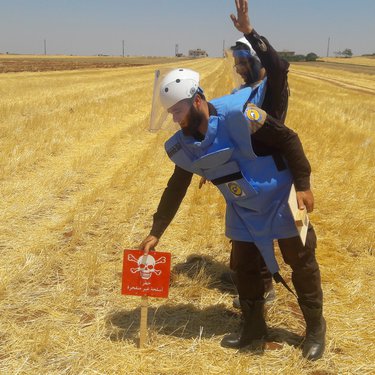
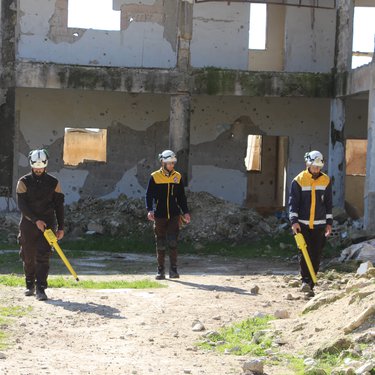
Idlib province
the disposal teams inspect the areas where unexploded ordnance is deployed in Idlib areas
Aleppo province
A volunteer identifies dangerous places to prevent residents from approaching them
Hama province
A volunteer teaches children about the danger of unexploded ordnance and the danger of approaching it
Idleb-Jiser ASH-shoghor
the team heading to contamination area to clearance items.
Idleb-Jiser ASH-shoghor
setup the opening fire action to destroyed the item
Idleb-Jiser ASH-shoghor
setup the opening fire action to destroyed the item
Idlib province
A group of volunteers of the clearance team search in contamination filed looking for explosive items in the countryside of Idleb 2017
Idlib province
A volunteer in the clearance team preparing the sandbags for protective work to make it's safety
Idlib province
the clearance team marking unexpressive item in the files of countryside of Idleb-2017
Hama province
A group of volunteer of the clearance team searching in urban area using magnetic locater to make sure the area is clear of explosive items, Hama countryside 2019.

